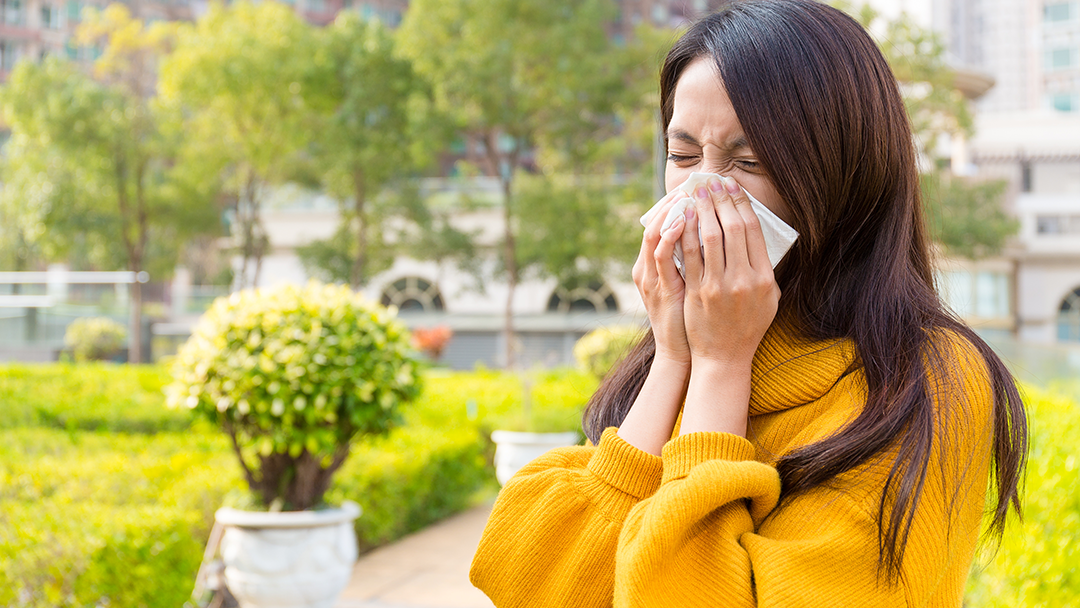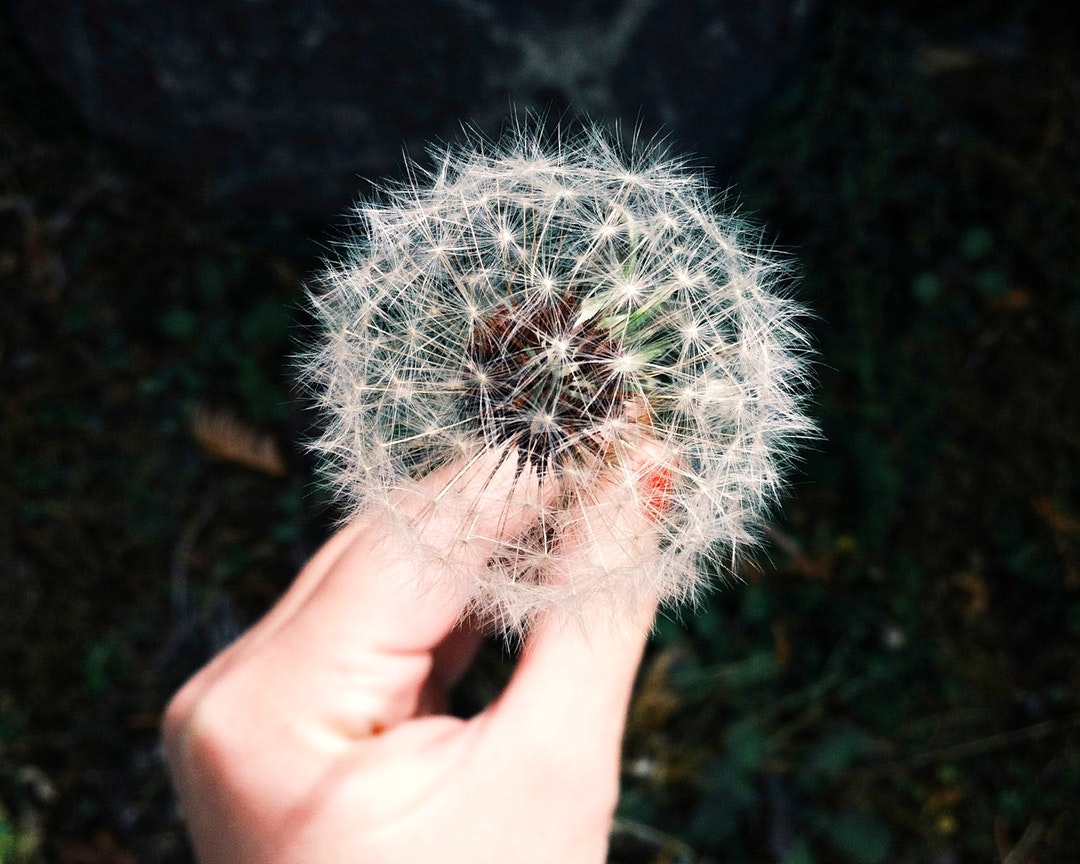While the changing of the seasons can be enjoyable to behold (what with all the restored natural beauty outdoors brought about by renewed growth), for people with allergies, it’s the signal that great physical discomforts are coming. The presence of pollen in the air translates to long sneezing fits, watery eyes, itchiness, wooziness, and headaches.
It’s rather unfortunate that so many people are driven indoors when the weather is warm, the trees are pushing out new leaves, and flowers are blossoming. Studies reveal that pollen production is not the only reason behind severe seasonal allergies — climate change, increased air pollution in the city, and the use of more chemical-based products at home are contributors as well.
Although it seems like there’s no winning over allergy season, health professionals say there are simple strategies that people with allergies can employ to stay fit and healthy.
Here are 12 helpful solutions you can try:
Table of Contents
1. Practice Smart Eating
Smart eating is all about eating with the goal of boosting your immune system. It also means steering clear of foods that are known to aggravate allergies, such as:
- Nuts
- Shellfish (the “scavengers” of the sea)
- Poultry products
- Anything that’s high in gluten
- Dairy
- Soy products
- Fruits with “hairs” or fibers
Instead of eating these, load up on natural or organic food, especially those loaded with probiotics. Try eating kimchi, which is considered the healthiest food in the world. Likewise, incorporate miso and yogurt to your diet. Probiotics will arm your body with good bacteria that can reduce allergic reactions to dust and grass.
2. Use Essential Oils
Most essential oils are used to boost health, and certain blends are highly effective in controlling allergy symptoms. For example, the mixture of cedarwood oil, German chamomile, Siberian fir, and tea tree oil is known to calm inflammation due to allergies.
The different oils in this recipe are rich in natural antihistamines, anti-inflammatory properties, and decongestants. Place the blend in a diffuser and let the oils fill the air with their healing properties. Alternatively, you can add this essential oil concoction to your bath water when you take a warm soak at night.
3. Use Regular Cleansers
While you may be more inclined to rely on antibacterial soaps and other cleansers, hold off on using them during the allergy season. Medical reports show that triclosan, a common antibacterial used in such products, can do more harm than good when you’re suffering from allergies.
Triclosan gets absorbed by the skin easily, and it can change the balance in your microbiome. This alteration somehow lowers immunity and triggers a more severe allergic reaction.
4. Take a Doctor-Prescribed Allergy Medicine
When it comes to the discomforts of seasonal allergies, nothing beats medically proven effective allergy relief tablets. Most of these provide instantaneous relief. Plus, a lot of them are formulated to jack up your tolerance to common allergens.
5. Buy an Air Purifier
This oft-portable device can take care of all the common airborne allergens such as animal dander, dust, mold, and pollen. What the device does is it traps all these allergens and prevents them from getting to you.
It is a rather pricey investment, but if you tend to suffer from severe allergies, it’s undoubtedly a worthy buy, especially if it’s the portable kind. Tip: If you wish to benefit the most from this product, make sure to place it right by the door, which is the typical entry point of allergens into your home.
6. Decorate Your Home with Houseplants
Everybody knows that plants are nature’s air purifiers. They can improve the air quality at home by sucking up the formaldehyde in cleaning products and home furnishings. Some of the best plants for filtering toxins in the air are bamboo palm, lady palm, and ficus. Plus, these are not just allergy prevention boosters, but visual delights as well.
7. Keep Your Mouth Hydrated
Bring a bottle of water with you at all times and suck on a lozenge for healthy saliva flow. A dry mouth can aggravate allergy symptoms, but if you drink often, you’ll find yourself less triggered to cough or sneeze.
Also, if you suck on a lemon-mint lozenge often (or any other flavor that can soothe the throat), you can avoid frequent coughing fits.
8. Increase Your Broccoli Sprouts Intake
Broccoli is considered a superfood, and for good reason. Its sprouts are rich in sulforaphane. This substance aids in the production of the antioxidant that helps the body to get rid of toxins. Plus, broccoli sprouts can help reduce allergic inflammation in the nasal passages.
9. Soak Up the Morning Sun
Vitamin D is crucial in the prevention of everything from asthma, eczema (a skin allergy), and nasal allergies. This vitamin controls inflammation, which is why it is highly recommended for people with allergic rhinitis and asthma to sunbathe in the morning.
Vitamin D3, in particular, is a must for people with a weakened respiratory system. You can check with your doctor and get a prescription for supplements.
10. Keep Your Home Dry
As much as possible, keep the air at home dry (but you can use a humidifier when your nasal passages feel tight). This will prevent the proliferation of molds and mites. At the same time, it will stop formaldehyde from turning into toxic gas.
So, make sure that your air conditioning is working properly in keeping moisture levels inside your home low.
11. Get Some Exercise
Exercise is one of the best energy and immunity boosters. This causes the release of your happy hormones which prevent stress hormones from affecting your immune system.
At the same time, exercise is a detoxification activity. You get to sweat out toxins from your body and improve blood circulation to get nutrients in the blood to all your major organs.
You can work out at home to avoid allergens outdoors, but doctors say it’s okay to try exercising outside. Just do so in the afternoon when the pollen count is usually low.
12. Shower More Often
Finally, allergens attach to your hair, skin, and clothes. So, after venturing outdoors and being exposed to all kinds of elements, head straight to the bathroom for a cleansing and refreshing shower. Shampoo your hair, scrub your body, and bring your clothes to the laundry room after.
You want to make sure that you are not spreading allergens in your house, specifically your bedroom where you get your rest.
Seasonal allergies create physical difficulties. Therefore, it’s a blessing to be armed with strategies that can prevent or calm the related symptoms. Use the 12 ideas shared here every time allergy season comes around so you can feel better and enjoy the new season.









